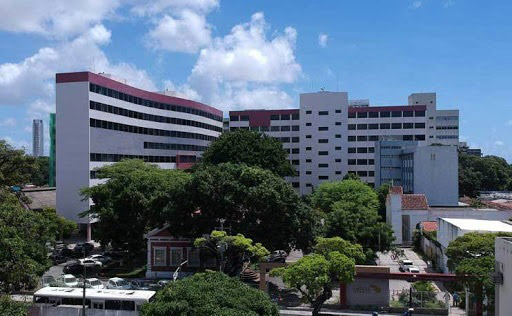The Catholic University of Pernambuco – UNICAP originated in 1943 with the Faculty of Philosophy, Science and Letters Manoel da Nóbrega and its formalization as a University took place in 1951.
Furthermore, there are in Unicap 38 undergraduate courses, 17 latu sensu specializations, 7 MBAs, 10 masters and 4 doctorates develop more than 200 research projects and more than 100 extension projects in 42 research groups certified by the Brazilian Ministry of Education, which, in turn, gave the University maximum marks in its last evaluation.
Today UNICAP celebrates its 76th anniversary with the award of 2,915 scholarships to its students.
What has done your institution concerning social innovation? What does your institution understands social innovation?

What does the Institution do in terms of Social Innovation?
LICEU: Innovation, Creativity and Entrepreneurship Laboratory for building socially responsible businesses;
Unicap-Icam International School: With the Institut Catholique d’Arts et Métiers, they seek solutions for technological development. For example, the first Complexity Engineering course in Brazil;
Master in Creative Industries: Pionner in the development of new communication products;
Conciliation and Mediation Chamber: With the Pernambuco Court of Justice, it resolves conflicts;
Legal Practice Center – ASTEPI: Formation of legal awareness and citizenship of the poor community;
Dom Helder Câmara Human Rights Chair: with UNESCO investigates actions in Human Rights;
Human Rights Clinic: Through active education, it builds solutions to socio-cultural-economic problems of the population in situations of vulnerability;
Casa de Direitos (Rights House): With Caritas of the Brazilian Northeast, it fosters the reception, integration and empowerment of migrants and refugees;
Instituto Humanitas (Humanitas Institute): Develops projects in Culture, Market, Poverty, Inequalities, Gender, Diversity and Public Policies;
Integral Campus: Performs actions in education, work, health and others for social development;
Academic Health Leagues: The different areas of Medicine help the community in the search to reduce health problems public;
Psychology and psychiatry ; speech therapy and physiotherapy clinics: Together, they accompany almost 1,700 personas with attendance and exams.
How does the Institution understand Social Innovation?
Social innovation is a solution to a social problem, that is, a more effective solution,
sustainable and whose impact benefits society as a whole.
In fact, social innovation activities are carried out in an interdisciplinary way of education, culture, sciences and policies that encourage the people involved to act as protagonists of your social change.
What has done your institution concerning climate change?
Given the forecasts of scenarios of increased frequency and intensity of extreme events, there is a need to prepare Brazilian cities to face these events and, for this, research projects are developed:
– Right to a safe city from disasters: Assessing institutional resilience in the metropolitan region of the city of Recife in Pernambuco;
– Safe city from extreme hydrological disasters: Measuring institutional resilience in cities in the coastal region of Pernambuco, as it understands that such institutional vulnerabilities are related to the inefficiency of a society and its institutions, in their ability to regulate, inspect, control and mitigate risks, this type of vulnerability.
Thus, the two surveys have the general objective of identifying the degree of institutional urban resilience in the face of disasters resulting from extreme hydrological events, based on a system of indicators and their respective index (IRCi).
It should also be noted that the Unicap has actions on its campus, like:
● Socio-environmental agenda – HUMANITAS
● Campaign to reduce the use of disposables and waste separation
● Construction of bike racks
● Green space
● Expansion of sidewalks on the outskirts of the University for a better quality of the urban space.
● In addition, from the Ecological Consciousness project: reflect, reduce, reuse and recycle with young people from the poor community in the most vulnerable neighborhoods in Recife.
● Environmental Management Course
● Leadership, innovation and sustainable business course – LIS